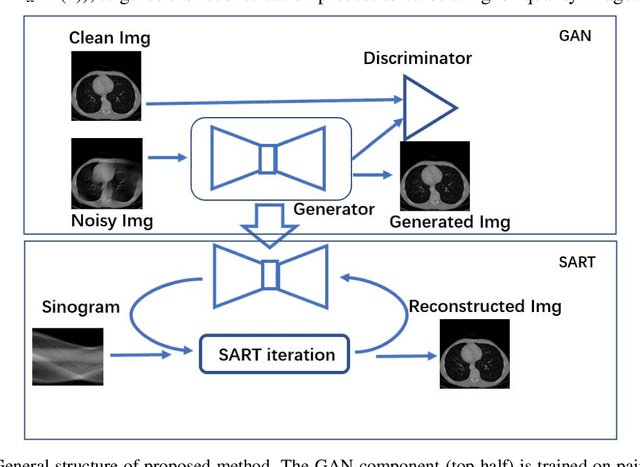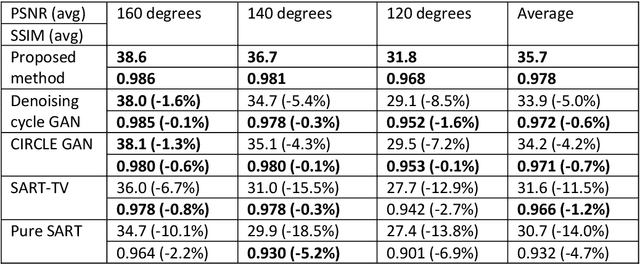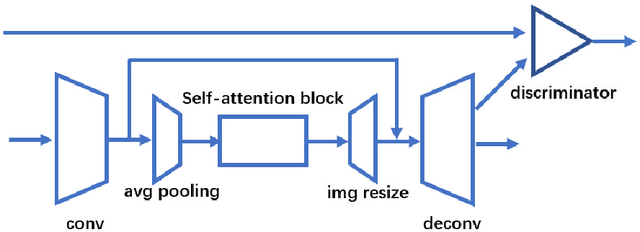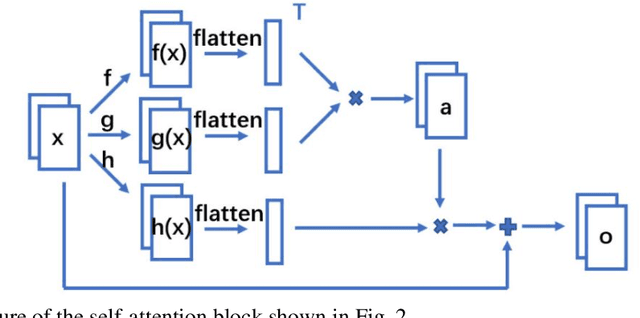Self-Attention Generative Adversarial Network for Iterative Reconstruction of CT Images
Paper and Code
Dec 23, 2021



Computed tomography (CT) uses X-ray measurements taken from sensors around the body to generate tomographic images of the human body. Conventional reconstruction algorithms can be used if the X-ray data are adequately sampled and of high quality; however, concerns such as reducing dose to the patient, or geometric limitations on data acquisition, may result in low quality or incomplete data. Images reconstructed from these data using conventional methods are of poor quality, due to noise and other artifacts. The aim of this study is to train a single neural network to reconstruct high-quality CT images from noisy or incomplete CT scan data, including low-dose, sparse-view, and limited-angle scenarios. To accomplish this task, we train a generative adversarial network (GAN) as a signal prior, to be used in conjunction with the iterative simultaneous algebraic reconstruction technique (SART) for CT data. The network includes a self-attention block to model long-range dependencies in the data. We compare our Self-Attention GAN for CT image reconstruction with several state-of-the-art approaches, including denoising cycle GAN, CIRCLE GAN, and a total variation superiorized algorithm. Our approach is shown to have comparable overall performance to CIRCLE GAN, while outperforming the other two approaches.
 Add to Chrome
Add to Chrome Add to Firefox
Add to Firefox Add to Edge
Add to Edge